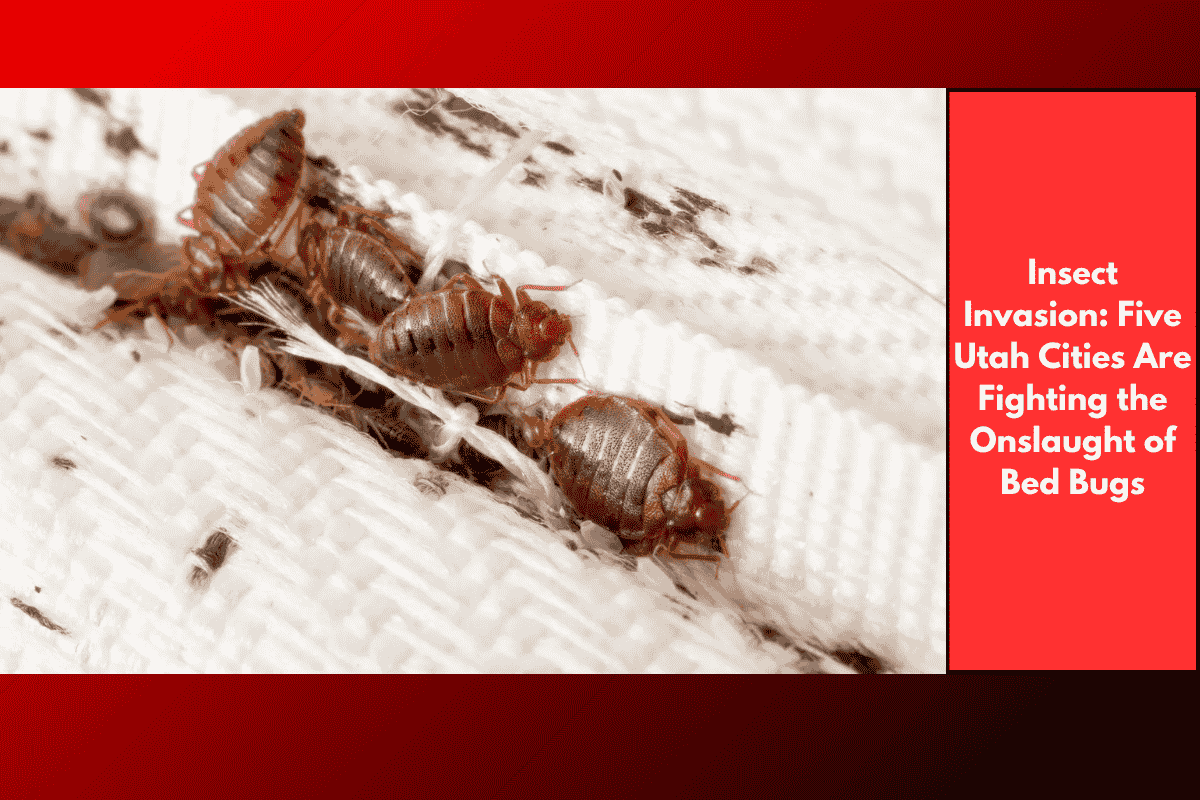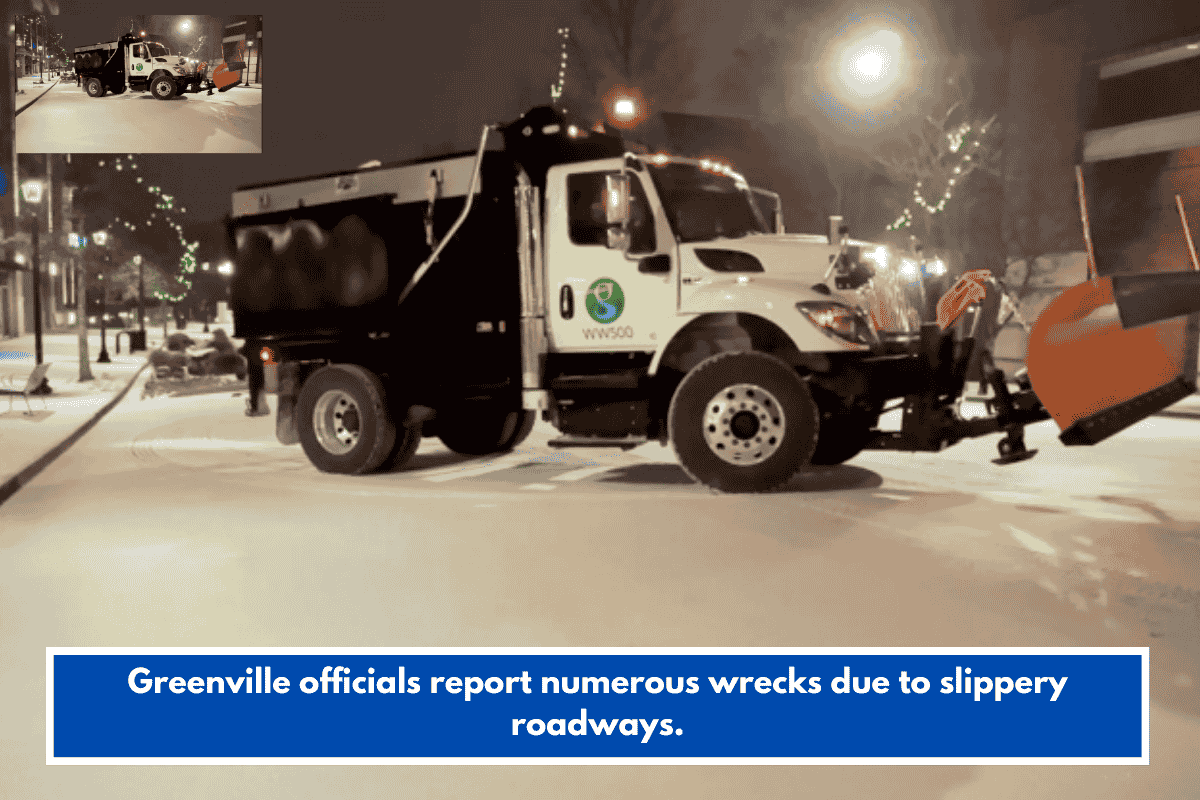In recent months, several cities across Utah have been grappling with an unexpected and unwelcome problem—bed bugs. The resurgence of these tiny, blood-sucking pests has taken residents and local authorities by surprise, forcing them to take swift action. But what’s behind this sudden influx, and what are local authorities doing to combat the situation?
The Bed Bug Problem in Utah
Bed bugs have been known to invade homes, hotels, and businesses, causing frustration and distress for many. These pests thrive in warm, cozy environments, making them particularly troublesome in hotels, apartments, and even public transportation systems. Bed bugs hide in cracks, crevices, and furniture, feeding on human blood while people sleep. Although they don’t spread disease, their bites can cause itching, discomfort, and sleep disturbances.
Which Cities Are Affected?
As of 2025, five Utah cities are experiencing a surge in bed bug infestations. These include:
Salt Lake City: Utah’s capital has seen a significant increase in complaints related to bed bugs, particularly in public housing and high-density apartment complexes.
Provo: The city is also battling bed bug infestations, especially in older residential buildings and student housing complexes near Brigham Young University.
Ogden: Bed bugs have been reported in several hotels and rental properties, with city officials working to educate residents and landlords about prevention.
Logan: As the weather warms, more reports are coming in from local residents and businesses about bed bug sightings in homes, schools, and motels.
St. George: The city has witnessed an uptick in bed bug activity, particularly in hotels and tourist accommodations that cater to visitors from outside Utah.
Why the Rise in Bed Bug Infestations?
Several factors may be contributing to the recent increase in bed bug infestations in Utah:
Increased Travel: The rise in tourism and travel in and out of Utah has led to a higher risk of bed bugs hitching rides in luggage and personal belongings.
Resistant Bugs: Bed bugs have become more resistant to common pesticides, making them harder to control using traditional methods.
Lack of Awareness: Many people do not recognize the signs of a bed bug infestation until it’s too late, leading to unchecked outbreaks in communities and public places.
Housing Density: High-density living areas, such as apartment buildings, are more susceptible to bed bugs due to shared walls and spaces where the pests can spread easily.
What Are Cities Doing to Combat the Problem?
Local governments and pest control experts in Utah are working together to tackle the growing issue of bed bugs. Some of the steps they are taking include:
Public Education Campaigns: Cities are providing information on how to identify bed bugs, prevent infestations, and take action if bed bugs are found. This includes posting educational materials in public areas and distributing flyers to residents.
Increased Inspections: Cities like Salt Lake City and Provo are conducting more routine inspections in hotels, apartments, and public housing to spot and treat infestations early. Property owners are also being encouraged to take preventative measures.
Hiring Professional Exterminators: Municipalities are partnering with licensed pest control experts who specialize in treating bed bugs using effective, eco-friendly methods.
Community Support: Local authorities are offering free or subsidized pest control treatments for low-income residents who may not be able to afford the cost of professional extermination.
Improved Housing Standards: Utah cities are updating building codes and health regulations to ensure that landlords maintain pest-free environments and take immediate action when bed bugs are found.
What Can Residents Do?
While cities and businesses work to tackle the issue, residents can also take steps to protect their homes from bed bugs:
Regular Inspections: Periodically check mattresses, furniture, and cracks in walls for signs of bed bugs, such as small blood spots or eggs.
Wash and Dry Bedding: Wash bedding and clothing regularly in hot water to kill any potential bed bugs or eggs.
Be Cautious When Traveling: Inspect hotel rooms for signs of bed bugs, and keep luggage elevated off the floor. Always unpack your belongings in a clean area.
Seal Cracks and Crevices: Seal up cracks in walls, baseboards, and around windows to prevent bed bugs from finding hiding places.
Report Infestations: If you suspect bed bugs in your home or business, report it immediately to a pest control professional or your landlord.
The bed bug outbreak in several Utah cities is a growing concern, but local authorities are taking action to manage the problem. With education, preventative measures, and professional pest control services, Utah is working to reduce the spread of these pesky insects. As a resident, staying informed and proactive can help keep your home free from bed bugs and contribute to the community’s efforts in tackling this infestation.
SOURCES
[1] https://www.orkin.com/press-room/worst-cities-for-bed-bugs-annual-rankings
[2] https://mywaynecountynow.com/insect-invasion-5-utah-cities-combatting-bed-bug-onslaught/
[3] https://www.frommers.com/tips/hotel-news/travelers-beware-these-u-s-cities-have-the-most-bed-bugs/
[4] https://www.terminix.com/blog/whats-buzzing/top-bed-bug-cities/
[5] https://www.independent.co.uk/news/world/americas/bed-bugs-worst-cities-us-b2769587.html














